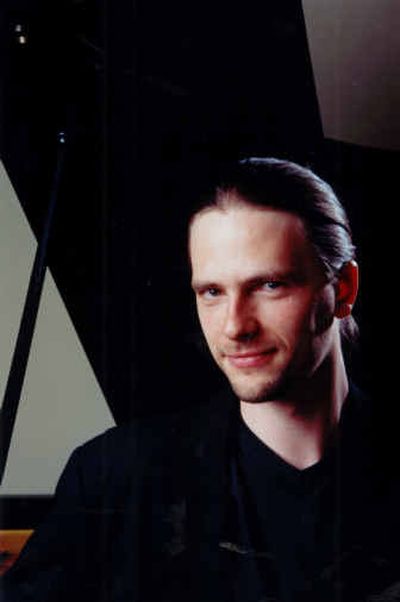It”s Groh time

“On the road” often characterizes the life of busy rock or pop musicians. But the expression could just as easily apply to today’s classical musicians, such as pianist Markus Groh and conductor Morihiko Nakahara – though “in the air” might be more appropriate.
Groh and Nakarhara will alight in Spokane for a concert with the Spokane Symphony on Friday.
Groh will perform two virtuoso works by Liszt: the Piano Concerto No. 1, together with the less frequently played “Todentanz.”
Nakahara, in his second season as the symphony’s associate conductor, will lead the orchestra in a program that includes Bartok’s Dance Suite and four orchestral excerpts from Wagner’s “Meistersinger.”
Finding both conductor and soloist for this article proved to be something of a telephonic chase.
We managed to catch up with Nakahara in Michigan, where he was preparing for a concert with his “other” orchestra, the Holland Symphony.
Groh, back in his native Germany following a series of concerts in the U.S., was more elusive. He thoughtfully offered a post-concert interview that would have had to take place at 1 a.m., European time; we respectfully declined.
In his mid-thirties, the German-born Groh has a career that began with an impressive list of competition prizes including the 1995 Queen Elisabeth Competition in Holland (the country, that is, not Holland, Mich.).
Orchestral and recital performances have since taken him to cities from St. Petersburg to Tokyo and practically very major orchestra and concert hall in between. He previously played with the Spokane Symphony in October 2000.
Groh, who divides his time between homes in Berlin and New York, is founder and director of a summer music festival in Berbersee, north of Berlin.
Harmonia Mundi recently released Groh’s recording of Brahms’ Sonatas for Cello and Piano, partnering him with cellist Alban Gerhardt, a recent Spokane Symphony soloist.
“Friday’s concert was built around Markus playing the two Liszt pieces. These concertos were already planned before I knew I would conduct this concert,” Nakahara says.
“Then, when I found out for sure that Markus would play one before intermission and the other afterward, it became a matter of finding one medium-length work to open with and another medium-length work to close with.”
Both Bartok and Wagner have Lisztian connections. Bartok, like Liszt, was Hungarian and, again like Liszt, a famous pianist. Wagner was Liszt’s son-in-law.
“And, of course, Liszt and Wagner were leaders of the avant-garde pack in the late 19th century,” Nakahara says.
In addition to his conducting in Spokane and in Michigan, Nakahara, 29, leads the orchestra program at Eastern Washington University. He recently was a guest conductor of the Jacksonville (Fla.) Symphony, led by the Spokane Symphony’s former music director, Fabio Mechetti.
In addition to Friday’s concert, Nakahara has full schedule over the next few weeks. He will conduct a performance of the Eastern Washington University Orchestra and Chorus at Our Lady of Lourdes Cathedral; a Spokane Symphony SuperPops concert with singer Lee Greenwood; a symphony performance with winners of Musicfest Northwest; and a symphony concert in Cheney, as well as some symphony performances in public schools.
“Sometimes it gets a little crazy,” Nakahara says. “But it’s better for a conductor to be busy than not to be busy.”
Groh and Nakahara will discuss musicians’ careers and the music on Friday’s concert in Classical Chats today at 12:15 p.m. in the council chambers at Spokane City Hall. The 30-minute program will be televised on City Cable Channel 5.
Nakahara also will discuss the music on Friday’s program as a part of the Gladys Brooks Pre-Concert Talks series in the Opera House auditorium at 7 p.m.